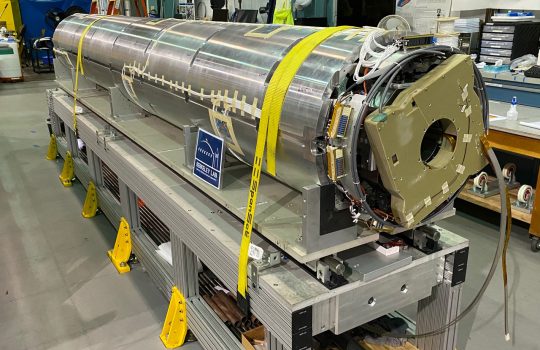Editor’s note: This article was originally issued by the Department of Energy.
WASHINGTON, D.C. – On June 4, the U.S. Department of Energy (DOE) announced $75 million in funding for 66 university research awards on a range of topics in high energy physics to advance knowledge of how the universe works at its most fundamental level.
The projects involve scientists at 51 U.S. institutions of higher learning across the nation, and include both experimental and theoretical research into such topics as the Higgs boson, neutrinos, dark matter, dark energy and the search for new physics.
“Research in high-energy physics not only advances our understanding of the universe, but is also critical to maintaining American leadership in science,” said Under Secretary for Science Paul Dabbar. “These research efforts, at dozens of universities across the nation, will not only yield fresh insights into such problems as dark matter and dark energy, but also help build and sustain the nation’s science and technology workforce.”
Projects include experimental work on neutrinos at DOE’s Fermi National Accelerator Laboratory; the search for dark matter with the LZ (LUX-ZEPLIN) experiment one mile below the Black Hills of South Dakota; the analysis of observatory data relating to dark energy and the expansion of the universe; and investigation of the Higgs boson from data collected at the Large Hadron Collider at CERN.
Other projects are aimed at further developments in particle physics theory, in advanced particle accelerators, and in new detector technologies, which scientists will use in continued explorations of the subatomic world.
High energy physics serves as a cornerstone of America’s science efforts. It plays a major role in nurturing top scientific talent and building and sustaining the nation’s scientific workforce. It also provides a deeper understanding of how our universe works at its most fundamental level.
This year’s projects were selected by competitive peer review under the DOE Funding Opportunity Announcement for Research Opportunities in High Energy Physics, sponsored by the Office of High Energy Physics within the DOE Office of Science.
Total funding is $75 million for projects lasting up to four years in duration. The list of projects and more information can be found here.



